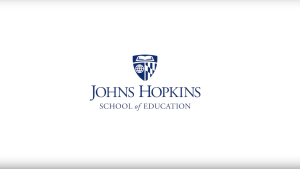Application Details
Prerequisites to Apply
Hold a bachelor’s degree from a regionally or nationally accredited college or university.
Earned minimum cumulative grade point average of 3.0 (on a 4.0 scale) in all previous undergraduate and graduate studies (including for incomplete programs of study and for programs still in progress).
Application Requirements and Deadlines
| MS in Special Education — Mild-to-Moderate Disabilities | ||
|---|---|---|
| Application Deadline: | Fall: July 15, 2026 | |
| Application Requirements: | ||
| Online application form | ||
| $80.00 application fee | ||
| Test Scores: | For candidates intending to submit a standardized testing score for admission, please visit the Maryland Department of Education website for a listing of specific tests accepted. | |
| Resume/CV: | To be uploaded to your online application form. | |
| Official Transcripts: | Official transcripts from all post-secondary institutions attended | |
| Essay: | To be uploaded to your online application form. Upload a 500-word essay discussing why you wish to pursue a degree at Johns Hopkins University, focusing on your long-term goals and how your academic program will complement those goals. Discuss the strengths and weaknesses in your educational background, as well as any additional comments that will assist in evaluating your application materials. Essays should be submitted in a typed format on a separate sheet of paper. | |
| Letters of Recommendation: | Two letters of recommendation from individuals who can speak to your work with children with disabilities. After entering the contact information for your recommendation providers within the online application, each provider will receive an email with instructions about logging onto our system. At that time, they will have the opportunity to fill out the Recommendation Form and upload a recommendation letter. Providers should use the online application form to upload and send their recommendation letters. Applicants should request recommendation letters that directly address their candidacy for admission to this program. Ideally, individuals selected to provide letters should include those from both academic and professional settings. It is acceptable for candidates who have not been enrolled in post-secondary-level courses for several years to substitute letters from professional contexts. | |
| Interview: | Applicants who meet admission requirements will be asked to interview (in-person, via Zoom, or by phone) to ensure that their goals align with the program’s goals before an offer of admission. For SET-IT program, additional interview with JHU SOE and MCPS is required. | |
Tuition and Fees
Tuition and fees are subject to change for ensuing academic years and will be updated on the School of Education website accordingly.
Scholarship Support Available
The Rising into Special Education Teacher Collaborative (RISE-TC) is a Johns Hopkins-Montgomery County partnership that uses evidence-based, culturally responsive practices to prepare teachers to support students with disabilities in inclusive and special education settings.
Admissions Webinar

Start your application today.
More Information
Baltimore, MD 21209
Suite M-500
What to Expect
Student Outcomes
- Understand the legal issues and federal requirements involved in educating students with disabilities
- Assess and evaluate student performances using formal and informal assessments
- Collect and analyze data to make evidence-based decisions across academic and behavioral domains
- Develop effective and innovative individualized instructional programs across various content areas including, math, literacy, and written language
- Manage and chart challenging student and classroom behaviors
- Collaborate effectively with fellow educators, parents, itinerant teachers, and other specialists, administrators, and students
- Reflect on your own ethical practices while becoming a lifelong member of the special education professional community
What is mild-to-moderate special education?

Mild to moderate special education refers to an educational program designed for learners with mild to moderate disabilities or learning differences.
Students with mild to moderate disabilities or learning differences typically require some level of specialized support or accommodations to access the general education curriculum, but their needs can often be met within an inclusive classroom setting.
What can you do with a master's degree in special education?

With a master's degree in special education, graduates can pursue various career opportunities.
With a master’s degree in special education from the Johns Hopkins School of Education, graduates can work as special education teachers in K-12 schools, specialize in specific areas like autism or learning disabilities, become educational consultants, work in educational leadership roles, or engage in research and advocacy for students with special needs.
Why is now the perfect time to pursue a career in special education?

With 49 states reporting teacher shortages in special education, there's a growing demand for qualified professionals who can make a meaningful impact.
States and districts throughout the mid-Atlantic are actively expanding pathways into the teaching profession to address these shortages and increase diversity. This is an exciting time to join a field where your skills and passion are urgently needed.
How do I get a mild-to-moderate special education credential to teach in Maryland?

To earn a mild-to-moderate special education credential in Maryland, you’ll need to complete a state-approved teacher preparation program that includes supervised teaching experience.
This typically begins with a bachelor’s degree in special education or a related field, though many educators also pursue a master’s degree to deepen their expertise. You must also pass the required certification exams, such as the Praxis II. Once you’ve met these requirements, you can apply for your Maryland teaching certificate through the State Department of Education. Hiring criteria may vary by school district.
International Applicants
International students interested in applying to a program at the Johns Hopkins School of Education must follow the same application process and submit the same general application materials as their peers, along with some additional requirements.
International Student Admissions
Please visit the International Student Admissions webpage for additional application requirements or information.


International Student Admissions
Please visit the International Student Admissions webpage for additional application requirements or information.


Legal Disclosure
Master of Science in Special Education Mild to Moderate Disabilities
State Authorization Disclosure Regarding Educational Prerequisites
Federal regulations require Johns Hopkins to disclose to students considering enrollment or enrolled in this program whether or not it meets educational prerequisites for licensure or certification by state.
Educational Prerequisites for Professional Licensure or Certification
Students who complete approved teacher preparation programs and pass the appropriate state and national teacher examinations are eligible to apply for teacher certification (licensure) in Maryland, and through such certification are eligible for reciprocal certification to the states listed below, See (1). Please be aware that some states may require additional courses or national teacher examinations. Students should contact individual State Departments of Education for the up to date information on current state requirements. Also, be sure to consult the ETS website for the specific tests required by each state.
(1) This program satisfies the educational prerequisites for licensure or certification in the following states: Maryland. Maryland has a licensure agreement that provides for reciprocity with Alaska, Arizona, Arkansas, California, the District of Columbia, Florida, Hawaii, Louisiana, Maine, Michigan, Minnesota, Mississippi, Missouri, New Hampshire, New Jersey, New Mexico, North Dakota, Oklahoma, Rhode Island, South Carolina, Tennessee, West Virginia, and Vermont.
(2) This program does not satisfy the educational prerequisites for licensure or certification in the following states: The licensure agreement provides for reciprocity with conditions in the following states: Colorado, Delaware, Idaho, Indiana, Nevada, North Carolina, Wyoming, Wisconsin, Virginia, Alabama, Connecticut, Georgia, Illinois, Iowa, Kansas, Kentucky, Massachusetts, Montana, Nebraska, New York, Ohio, Oregon, Pennsylvania, South Dakota, Texas, Utah, and Washington.
Students located in a state where their program does not meet that state’s licensure or certification educational prerequisites may have difficulty finding a job in that occupation and/or repaying loans borrowed to complete the program.
